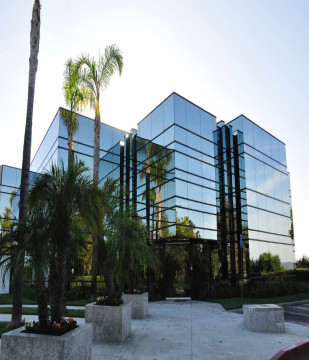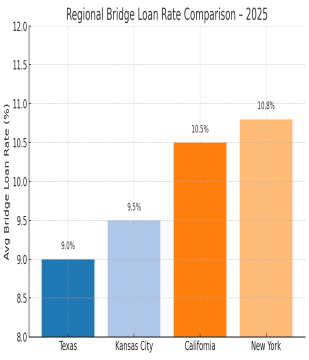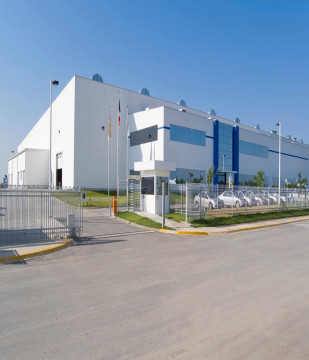Hospitality Assets in Commercial Real Estate

Terrydale Capital
Sep 5, 2024 8 Min read
 Learn
Learn
Hospitality assets are a significant and dynamic part of the commercial real estate (CRE) sector, offering unique opportunities for investors seeking diversification, stability, and potential for growth. As the world becomes more interconnected through tourism, business travel, and cultural exchanges, hospitality assets have emerged as a key component of global and local economies.
In this blog, we’ll explore what hospitality assets are, what types of properties fall under this category, and why they can be a compelling investment choice.
What Are Hospitality Assets?
Hospitality assets refer to real estate properties designed to accommodate short- and long-term stays, catering primarily to travelers and tourists. These properties are revenue-generating and depend heavily on location, market demand, and overall economic conditions. The performance of hospitality assets is also directly tied to occupancy rates, average daily rates (ADR), and the overall health of the tourism and travel industries.
Types of Hospitality Assets
Hospitality assets come in various forms, each catering to different segments of the market. Some of the key types include:
- Hotels and Resorts
The most common type of hospitality asset, hotels range from budget accommodations to luxury resorts. They cater to a broad audience, from business travelers to vacationers. Resorts, on the other hand, often focus on leisure activities and are located in tourist-heavy areas like beaches or mountains. Both can generate consistent income depending on location and brand strength. - Motels
Typically located along highways or near transportation hubs, motels serve travelers who require basic accommodations for short stays. They are often more affordable than hotels and tend to attract budget-conscious guests. - Extended Stay Hotels
These properties cater to guests who require longer stays, often offering amenities such as kitchenettes, laundry services, and larger living spaces. This type of asset appeals to business professionals on long-term assignments or people transitioning between homes. - Boutique Hotels
Boutique hotels offer unique, often high-end, accommodations with personalized services. They tend to be smaller than chain hotels and are usually located in trendy urban areas or tourist hotspots. These assets often provide an individualized experience that attracts a specific clientele looking for something different from standard accommodations. - Vacation Rentals and Airbnb
The rise of short-term rental platforms like Airbnb has created a new category of hospitality assets. Individual properties or groups of properties that are rented out for short-term stays fall under this category. While they operate outside of the traditional hotel model, they are still considered part of the hospitality sector due to their role in accommodating travelers.
Why Invest in Hospitality Assets?
- High Income Potential
Hospitality assets have the potential to generate significant income through daily or nightly rates, especially in prime locations or tourist-heavy areas. Unlike traditional long-term leases, the daily turnover allows owners to adjust rates more frequently, capitalizing on peak seasons or special events. - Portfolio Diversification
Investing in hospitality assets allows for diversification in an investor’s portfolio, reducing exposure to other sectors like office, retail, or industrial. Hospitality’s income structure can serve as a counterbalance to other asset types, particularly when demand for travel is strong. - Economic Growth and Tourism
As economies grow, so does the demand for travel, both for business and leisure. Global tourism is expected to continue expanding, especially as international travel rebounds post-pandemic. High-demand destinations, especially in emerging markets, present strong investment opportunities in hospitality real estate. - Inflation Hedge
One unique advantage of hospitality assets is their ability to serve as an inflation hedge. Hotel operators can frequently adjust room rates to reflect inflationary pressures, ensuring that revenue keeps pace with rising costs. This is more difficult to achieve with long-term leases common in other CRE sectors. - Brand and Operator Expertise
The success of a hospitality asset often hinges on the brand and operator managing the property. Well-known hotel brands can command premium rates and generate consistent demand due to customer loyalty and brand reputation. For investors, choosing assets managed by established operators can minimize risk while optimizing returns. - Tax Benefits
Hospitality assets can offer several tax advantages to investors. Depreciation deductions, for example, can reduce taxable income, while certain types of improvements may qualify for additional deductions. It’s essential to consult with tax professionals to maximize these benefits.
Risks to Consider
While hospitality assets offer many opportunities, they are also subject to specific risks. The most notable is market sensitivity, where occupancy rates and ADR can fluctuate significantly during economic downturns. The sector is also susceptible to seasonal demand, competition from alternative accommodations like Airbnb, and operational challenges related to staffing and maintenance.
Conclusion
Hospitality assets in commercial real estate offer a dynamic, income-generating investment opportunity, particularly for those looking to diversify their portfolio. By understanding the different types of assets, focusing on strong locations, and partnering with experienced operators, investors can unlock the potential of this sector and capitalize on the continued growth of global travel and tourism. However, as with any investment, it’s essential to carefully consider the risks and market dynamics that can impact performance. When you need the right team behind your investment, contact us at Terrydale Capital today!
Partner With Terrydale Capital for Your Debt Financing Needs
When it comes to debt financing, understanding the right timing, process, and options is crucial. At Terrydale Capital, we provide a comprehensive range of commercial loan solutions tailored to meet your business's unique needs.
































































































































































































































































































































































